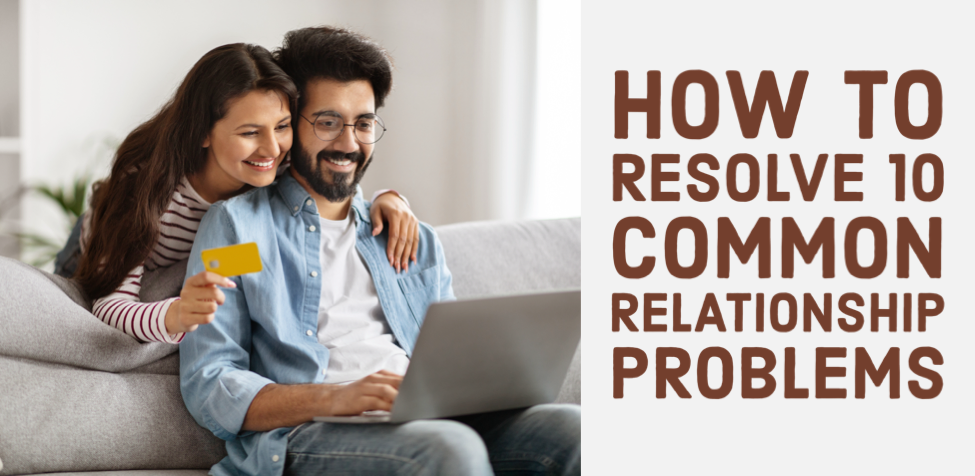Relationships inevitably face challenges, but it is how couples address these issues that determines their long-term success and happiness. When problems arise, frustration and misunderstandings may lead to conflict, but solid strategies can help solve relationship problems and restore connection.
This article explores expert-recommended tips to solve relationship problems effectively, foster healthy communication, and nurture a resilient, loving partnership.
Understanding Why Relationship Problems Arise
Before trying to solve issues, it’s crucial to recognize the common roots of relationship problems. Many conflicts stem from unmet emotional needs, communication breakdowns, differing expectations, or external stresses. Problems often appear as surface disagreements but frequently indicate deeper concerns such as feeling unappreciated or disconnected.
By identifying the root causes, couples can work collaboratively towards meaningful solutions rather than reacting to symptoms alone.
Tip 1: Communicate Openly and Honestly
Effective communication is the foundation for solving relationship problems. Couples must feel safe to express their feelings, thoughts, and needs without fear of judgment or dismissal. Active listening—truly hearing your partner without interrupting or planning rebuttals—builds empathy and understanding.
Honesty means discussing not only what is wrong but also what you want to improve in the relationship. Using “I” statements, like “I feel hurt when…” instead of “You always…” prevents blame and defensiveness.
Tip 2: Identify and Address the Real Issues
Surface arguments may mask deeper issues. For example, disagreements about household chores might actually reflect unmet needs for respect or support. Taking time to reflect on what each partner truly wants and feels helps uncover hidden problems.
Try to see the situation from your partner’s perspective and ask open-ended questions to understand the heart of the matter. Identifying real issues enables couples to focus their energy wisely.
Tip 3: Practice Patience and Avoid Blame
Solving relationship problems requires patience. Change and healing take time, and rushing resolution can cause more strain. Avoid blaming your partner or yourself, which only fuels resentment and halts progress.
Instead, approach problems with a collaborative mindset, seeking solutions rather than winners or losers. Celebrate small successes and remain committed to the process.
Tip 4: Set Boundaries and Respect Differences
Healthy relationships honor each partner’s individuality. Recognizing and respecting differences—whether in personality, values, or habits—reduces conflict. Agree on boundaries that make both partners feel comfortable and respected.
Allow space for personal interests and downtime. This balance between closeness and independence keeps a relationship vibrant.
Tip 5: Learn Conflict Resolution Skills
Conflicts are natural, but how couples handle them defines their impact. Avoid yelling, name-calling, or stonewalling. Instead, agree on rules for fair fighting like taking turns speaking, avoiding interruptions, and calling breaks when emotions escalate.
Seek common ground and compromise where possible. Remember, “winning” an argument is less important than strengthening the bond.
Tip 6: Prioritize Positive Interactions
Research shows that happy couples maintain a ratio of positive to negative interactions of about 5:1, meaning for every negative exchange, five positive ones help build resilience. Compliments, gratitude, kind gestures, and affectionate touch should outnumber criticisms or complaints.
Invest time regularly to express appreciation and nurture affection, which provides a buffer during tough times.
Tip 7: Spend Quality Time Together
Busy schedules and distractions can widen relationship gaps. Prioritize regular quality time to reconnect, have fun, and share experiences without distractions like phones or TV. This facilitates emotional closeness and helps prevent buildup of unresolved issues.
Whether it’s date nights, walks, or shared hobbies, intentional time together fosters intimacy.
Tip 8: Seek Professional Guidance if Needed
Some relationship problems benefit greatly from expert help. Couples therapy or counseling provides a safe space to explore challenges with a trained professional who can facilitate communication, teach conflict resolution skills, and offer tailored strategies.
Therapy is not a last resort but a proactive tool for many couples to restore harmony and growth.
Tip 9: Focus on Self-Improvement and Emotional Awareness
Each partner’s self-awareness and emotional regulation affect relationship dynamics. Practice empathy, manage stress, and build emotional intelligence to respond thoughtfully rather than react impulsively during conflicts.
Taking responsibility for one’s own growth contributes positively to the partnership.
Tip 10: Remember Why You Fell in Love
During rough patches, recalling shared values, memories, and qualities that drew you together rejuvenates commitment. Reflecting on the good times reignites affection and motivation to work through difficulties.
This perspective nurtures hope and connection.
Read More: How to Stop Arguing in a Relationship: Practical Tips to Rebuild Harmony
Summary
Tips to Solve Relationship Problems are inevitable but solvable with commitment, communication, and compassion. Implementing these expert tips to solve relationship problems encourages understanding, reduces conflict, and strengthens bonds.
If challenges persist, professional counseling can provide personalized support to navigate complex issues and rebuild trust.








No comment